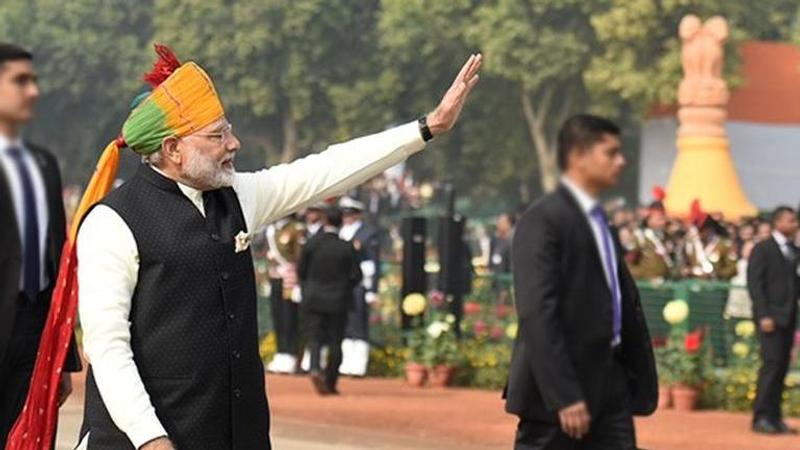Published 08:09 IST, February 2nd 2018
Budget 2018 shows Modi confidence about 2019
What would a typical stump speech of BJP leaders look like if the general elections were to be pulled up and held in December 2018?

What would a typical stump speech of BJP leaders look like if the general elections were to be pulled up and held in December 2018? That we will get clean Ganga by 2019, housing for all by 2022, smart cities by 2024, and 100% irrigation in 2027. Essentially, all beyond the voting. Or to put it in starker terms, well past the use-by date. If you look at it, the deadlines are actually beyond the regular date of May 2019 as well.
Thus, conventional political wisdom would have asked for slipping in a farm loan waiver in the budget presented today by Finance Minister Arun Jaitley. Congress actually did that in 2008 with costs to exchequer hitting 0.9% of GDP. Or, woo the core constituency of salaried middle class with sops, and the powerful Bombay boys with tax cuts. In his dream budget of 1997, P Chidambaram had lowered Income Tax for individuals, corporate tax for companies, and brought down a plethora of other indirect duties. It was obviously a perilously holding United Front government on Congress’ life support. Even the last full budget of NDA-I in 2003 had pink paper headlines screaming ‘Jas, We Love You’ for Jaswant Singh’s swansong. And though BJP lost in 2004, even Vajpayee was not above the temptation of being a little indulgent with his middle-class voters.
Nothing of that sort has happened with 2018 union budget, last full one of Prime Minister Narendra Modi. All talk of a populist budget vaporised by the time Jaitley concluded his speech. Instead, we have opposition (and the Bombay boys) blaming the government for not being ambitious enough! The Sensex swing proved that the budget was not exactly palatable for the markets given the reappearance of Long Term Capital Gains (LTCG) tax. Despite a minor fiscal slippage – well within FRBM Act guidelines – the final Jaitley budget focuses more on consolidating achievements of already in-operation schemes launched since 2014. Be it MUDRA or Ujjwala, JAM trinity or Saubhagya, allocations clearly aim at scaling up and execution. The health insurance and MSP compensation schemes are more about State welfarism than populism.
So what could have made Modi take this political risk? For one, the macros look good and tailwinds outnumber headwinds within a cautionary framework. But there is more. And that is the almost unparalleled appetite in Narendra Modi to handle risks. Even physical danger. We saw it in his decision to carry on with the rally in Patna when bombs were going off at the Gandhi Maidan in 2014. In politics, I have seen it evolve into a conviction in Modi that governance can deliver political power without the crutches of sops and doles. In 2007 only few months ahead of his second election in Gujarat, as part of larger power sector reforms, Modi had gone after electricity theft in Saurashtra, even putting some district-level BJP leaders behind bars. When I asked him whether this entailed political risk, he told me he could not care less so long as he could convince people of the larger good.
Or how would you explain keeping the defence budget at 1962 levels in percentage terms while wearing an image of a macho administration? Or for that matter keep many other social sector schemes at similar levels of allocation and sell better execution as the USP instead. Earlier in the day, as Jaitley headed into parliament with the trademark budget briefcase in hand, I had made my comment from the studio that it would be a difficult choice between consolidation and cornucopia for the finance minister. Picking up from the Economic Survey I had also said that “finishing what the government started would be ambitious and fantastic.” The budget numbers have proven me right.
Updated 03:29 IST, February 15th 2018




